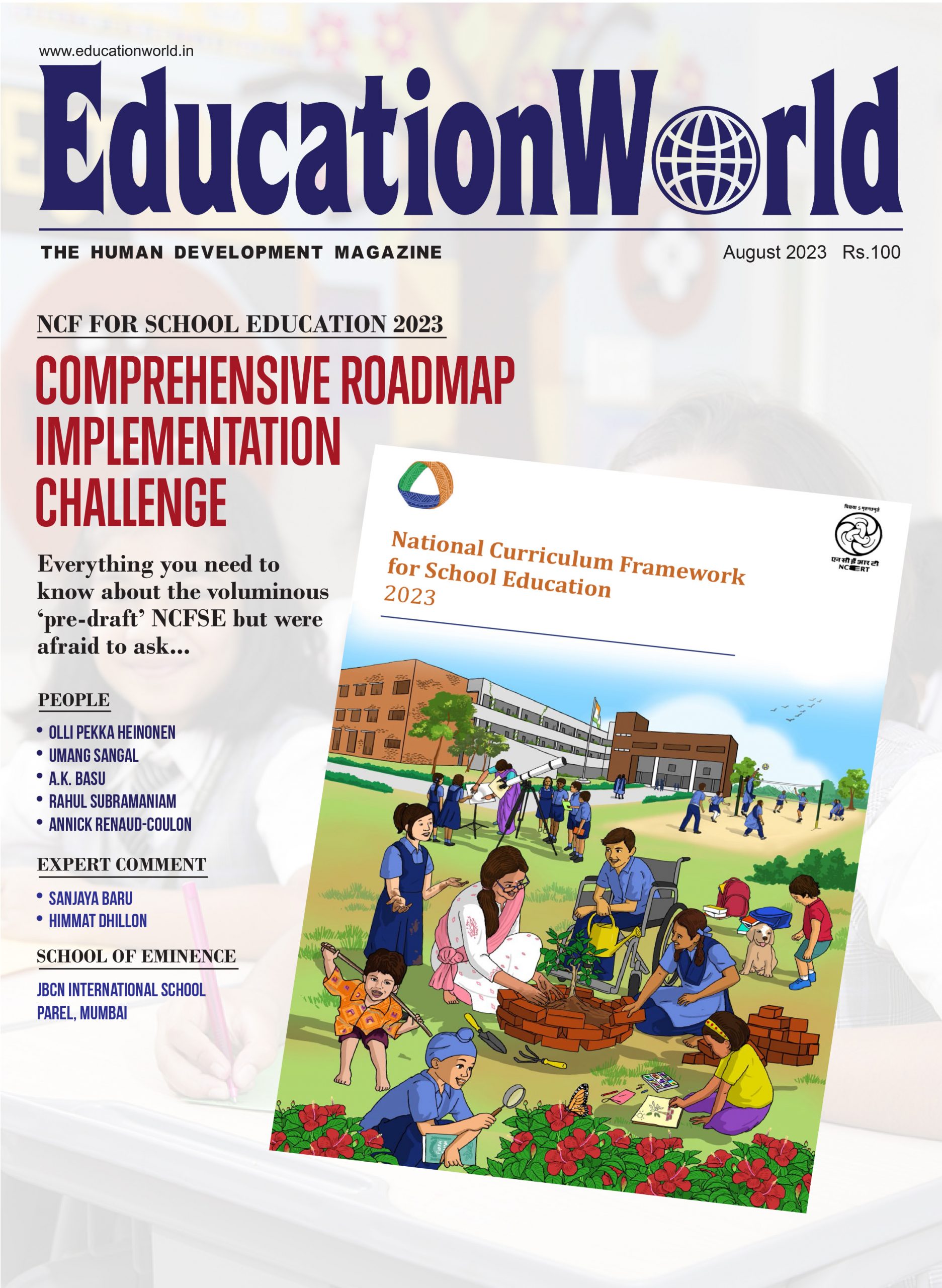Everyone has heard of that popular put down of data — “lies, damned lies and statistics”. Getting people to trust official data is more difficult than collecting data. In recent years, gaps in data

SAJAY BARU
collection, partly on account of inadequate funding and partly because of political interference, has generated widespread distrust of statistics produced by government agencies. The Union government’s decision to postpone the decennial census has further contributed to the view that the government doesn’t want to gather data that may not serve its political purposes.
The recent decision of the Union government to suspend K.S. James, director of the International Institute for Population Sciences, because of his skepticism about data relating to National Family Health Surveys, raises serious questions about the value the Modi government attaches to professionalism and due process.
Economist Sonalde Desai has been at the forefront in commenting on the data controversy. In an essay (Sunday Times of India, July 30), she has made a plea for rebuilding India’s statistical system. Earlier, she had commented on the government’s response to the Global Hunger Index observing that it draws attention to the difficulties of constructing such indices and diverts attention from substantial arguments relating to statistics, their collection, and construction of indices. But the lay public is not interested in substantial arguments and only remembers numbers and country ranking.
There was a time when the general public paid little attention to studies coming out of international organisations. In 1990, Nobel economist Amartya Sen, London School of Economics professor Meghnad Desai and former finance minister of Pakistan, Mahbub ul Haq, constructed the Human Development Index (HDI) and the United Nations published a Human Development Report based on the index. It successfully measures country performance not just on gross domestic product (GDP) but also on other parameters including education and health.
Since then, there has not only been a proliferation of such reports coming out of various United Nations agencies but also several global non-governmental organisations. However, again these reports didn’t attract much attention because governments of the day were not seeking global approval or were irritated by disapproval. But we are now into achche din, and any sachchi baat coming from outside either excites the establishment or makes it angry.
As for the HDI, the big issue in early years was India’s relative ranking compared with neighbouring countries. Although Dr. Haq was Pakistani, he was a scholar at Cambridge University, UK, and knew Amartya Sen and Manmohan Singh well. Therefore, no one accused him of any anti-India bias, even though India had a low rank. Most were satisfied that India’s rank was above Pakistan’s.
During prime minister Narendra Modi’s first-term in office, the World Bank’s Ease of Doing Business (EoDB) index became a hot topic because it showed a dramatic improvement in India’s rank. When the report was published in 2017, the Union government organised a celebratory event in New Delhi, inviting the World Bank’s Hungarian CEO Kristalina Georgieva. At the event, Modi praised Ms Georgieva sky-high even as leaders of Indian business were in full attendance. No one questioned how this dramatic improvement had been constructed.
By 2021, Ms Georgieva got caught in a EoDB scandal when an internal enquiry revealed senior World Bank officials had tweaked numbers to favour China and Saudi Arabia. Many in the bank and in India felt that numbers had been manipulated in India’s favour as well. The PM’s high praise for Georgieva strengthened this sentiment.
Whatever the facts, despite the ignominy of the scandal, Georgieva not only retained her job but, before the scam broke out, she was promoted to the office of Managing Director of the International Monetary Fund. Cynics in Washington DC said the combined weight of China, India and Saudi Arabia tilted the decision in her favour.
Even though China doesn’t give a damn about World Bank and IMF data, India has a schizophrenic attitude towards such international comparisons and indices. Both at home and overseas, Indians are constantly looking for global approval and get very prickly when it doesn’t go their way. Desperation for approval and anger against international disapproval have markedly increased in the past decade.
Prime minister Modi’s mega gatherings in the United States, in New York and Houston, at which several US politicians were in attendance and President Donald Trump walked hand in hand with him, excited his supporters’ base. But when US politicians criticised India’s human rights record, religious bigotry and so on, hell broke loose.
The Hunger Index was flawed and got rejected and buried quickly. That, however, doesn’t mean that all such efforts at quantifying reality are flawed and that all statistics are lies.
(Sanjaya Baru is former editor of Business Standard, media advisor to the prime minister and author of The Accidental Prime Minister and 1991: How P.V. Narasimha Rao Made History)
 10 oldest cities in the world Every city in the world has a story to unfold. The ancient cities have all the more tales engulfed with ...
10 oldest cities in the world Every city in the world has a story to unfold. The ancient cities have all the more tales engulfed with ...  The Importance of Art Appreciation The term art encompasses a large variety of works, from paintings to sculptures, architecture to design, and in modern times ...
The Importance of Art Appreciation The term art encompasses a large variety of works, from paintings to sculptures, architecture to design, and in modern times ...  15 Ancient jobs that still exist today Ancient jobs came into being primarily because of the earliest human needs. Occupations such as farming, tool making, and carpentry ...
15 Ancient jobs that still exist today Ancient jobs came into being primarily because of the earliest human needs. Occupations such as farming, tool making, and carpentry ...  Maharashtra proposes school closures in March to stem COVID-19 spread Dipta Joshi Among rising COVID-19 cases across Maharashtra, the state’s education minister, Varsha Gaikwad has advised the state’s local administrative ...
Maharashtra proposes school closures in March to stem COVID-19 spread Dipta Joshi Among rising COVID-19 cases across Maharashtra, the state’s education minister, Varsha Gaikwad has advised the state’s local administrative ... 





















International politics of statistics
Everyone has heard of that popular put down of data — “lies, damned lies and statistics”. Getting people to trust official data is more difficult than collecting data. In recent years, gaps in data
SAJAY BARU
collection, partly on account of inadequate funding and partly because of political interference, has generated widespread distrust of statistics produced by government agencies. The Union government’s decision to postpone the decennial census has further contributed to the view that the government doesn’t want to gather data that may not serve its political purposes.
The recent decision of the Union government to suspend K.S. James, director of the International Institute for Population Sciences, because of his skepticism about data relating to National Family Health Surveys, raises serious questions about the value the Modi government attaches to professionalism and due process.
Economist Sonalde Desai has been at the forefront in commenting on the data controversy. In an essay (Sunday Times of India, July 30), she has made a plea for rebuilding India’s statistical system. Earlier, she had commented on the government’s response to the Global Hunger Index observing that it draws attention to the difficulties of constructing such indices and diverts attention from substantial arguments relating to statistics, their collection, and construction of indices. But the lay public is not interested in substantial arguments and only remembers numbers and country ranking.
There was a time when the general public paid little attention to studies coming out of international organisations. In 1990, Nobel economist Amartya Sen, London School of Economics professor Meghnad Desai and former finance minister of Pakistan, Mahbub ul Haq, constructed the Human Development Index (HDI) and the United Nations published a Human Development Report based on the index. It successfully measures country performance not just on gross domestic product (GDP) but also on other parameters including education and health.
Since then, there has not only been a proliferation of such reports coming out of various United Nations agencies but also several global non-governmental organisations. However, again these reports didn’t attract much attention because governments of the day were not seeking global approval or were irritated by disapproval. But we are now into achche din, and any sachchi baat coming from outside either excites the establishment or makes it angry.
As for the HDI, the big issue in early years was India’s relative ranking compared with neighbouring countries. Although Dr. Haq was Pakistani, he was a scholar at Cambridge University, UK, and knew Amartya Sen and Manmohan Singh well. Therefore, no one accused him of any anti-India bias, even though India had a low rank. Most were satisfied that India’s rank was above Pakistan’s.
During prime minister Narendra Modi’s first-term in office, the World Bank’s Ease of Doing Business (EoDB) index became a hot topic because it showed a dramatic improvement in India’s rank. When the report was published in 2017, the Union government organised a celebratory event in New Delhi, inviting the World Bank’s Hungarian CEO Kristalina Georgieva. At the event, Modi praised Ms Georgieva sky-high even as leaders of Indian business were in full attendance. No one questioned how this dramatic improvement had been constructed.
By 2021, Ms Georgieva got caught in a EoDB scandal when an internal enquiry revealed senior World Bank officials had tweaked numbers to favour China and Saudi Arabia. Many in the bank and in India felt that numbers had been manipulated in India’s favour as well. The PM’s high praise for Georgieva strengthened this sentiment.
Whatever the facts, despite the ignominy of the scandal, Georgieva not only retained her job but, before the scam broke out, she was promoted to the office of Managing Director of the International Monetary Fund. Cynics in Washington DC said the combined weight of China, India and Saudi Arabia tilted the decision in her favour.
Even though China doesn’t give a damn about World Bank and IMF data, India has a schizophrenic attitude towards such international comparisons and indices. Both at home and overseas, Indians are constantly looking for global approval and get very prickly when it doesn’t go their way. Desperation for approval and anger against international disapproval have markedly increased in the past decade.
Prime minister Modi’s mega gatherings in the United States, in New York and Houston, at which several US politicians were in attendance and President Donald Trump walked hand in hand with him, excited his supporters’ base. But when US politicians criticised India’s human rights record, religious bigotry and so on, hell broke loose.
The Hunger Index was flawed and got rejected and buried quickly. That, however, doesn’t mean that all such efforts at quantifying reality are flawed and that all statistics are lies.
(Sanjaya Baru is former editor of Business Standard, media advisor to the prime minister and author of The Accidental Prime Minister and 1991: How P.V. Narasimha Rao Made History)